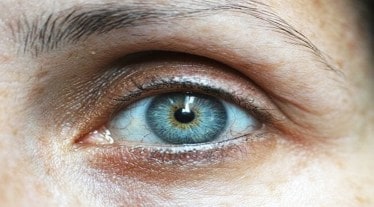By Dr. Shantanu Mukherjee
As we welcome the summer season, it’s important to be aware of the potential health issues that come with it. One such issue is dry eyes, which is a common problem that affects many people, especially during the summer months. With the increase in exposure to sunlight, air conditioning, and dry air, it’s essential to understand the causes, symptoms, risk factors, treatment options, management techniques, and prevention strategies for dry eyes in the summer.
Let’s delve deeper into the topic to provide you with comprehensive information about dry eyes and how to effectively deal with them during the hot summer months.
Causes of dry eyes in the summer
The primary cause of dry eyes in the summer is the hot and dry weather. The heat and humidity can cause the tears to evaporate quickly, leading to dryness in the eyes. The use of air conditioning also contributes to the problem, as it reduces the humidity in the air, causing the eyes to dry out.
Exposure to the sun and wind can also cause dry eyes, as it increases the evaporation of tears. People who spend a lot of time outdoors during the summer months are at a higher risk of developing dry eyes.
Symptoms of dry eyes in the summer
The symptoms of dry eyes in the summer are similar to those experienced in other seasons, but they may be more severe. Some of the common symptoms of dry eyes are:
1. Irritation and burning sensation in the eyes
2. Redness and swelling
3. Sensitivity to light
4. Blurred vision
5. Eye fatigue and discomfort
6. Excessive tearing
Risk factors for dry eyes in the summer
There are several risk factors that increase the chances of developing dry eyes during the summer. Some of these include:
1. Age: As we age, our tear production decreases, making us more susceptible to dry eyes.
2. Medical conditions: Certain medical conditions like arthritis, diabetes, and thyroid problems can also increase the risk of dry eyes.
3. Medications: Some medications like antihistamines, decongestants, and antidepressants can cause dry eyes.
4. Contact lenses: Wearing contact lenses for long hours can also cause dry eyes.
5. Environmental factors: Exposure to air conditioning, wind, and sunlight can all contribute to dry eyes.
Treatment and management of dry eyes in the summer
The treatment and management of dry eyes in the summer involve several measures that can help alleviate the symptoms and prevent further damage to the eyes. Some of these include:
1. Artificial tears: Using over-the-counter artificial tears can help keep the eyes moist and relieve the symptoms of dry eyes.
2. Use eye drops: If over-the-counter drops are not effective, eye drops prescribe by your doctor may be necessary to increase tear production and reduce inflammation.
3. Warm compresses: Applying warm compresses to the eyes can help reduce inflammation and increase tear production.
4. Eyelid hygiene: Keeping the eyelids clean and free of debris can prevent blockage of the oil glands, which can contribute to dry eyes.
5. Limiting screen time: Reducing the amount of time spent on digital devices can also help reduce the strain on the eyes and prevent dryness.
6. Protective eyewear: Wearing sunglasses and protective eyewear can help protect the eyes from the sun, wind, and dust.
7. Hydration: Staying hydrated by drinking plenty of water can also help prevent dry eyes.
Prevention strategies for dry eyes in the summer
There are several strategies that can be used to prevent or minimize dry eyes in the summer:
1. Stay hydrated: Drinking enough water and staying hydrated can help to keep the body, including the eyes, well-hydrated.
2. Wear Sunglasses: Wearing sunglasses with 100% UV protection can help to reduce the amount of UV radiation that reaches the eyes, and can also provide a barrier against wind and dust.
3. Use artificial tears: Using artificial tears or lubricating eye drops before going outdoors or spending time in air conditioning can help to prevent dryness.
4. Take breaks: Taking regular breaks when reading or using a computer can help to reduce eye strain and dryness.
5. Adjust screen settings: Adjusting the brightness and contrast of digital screens, and positioning them to reduce glare, can help to reduce eye strain and dryness.
6. Avoid smoky or dusty environments: Smoky or dusty environments can exacerbate dry eyes, so it’s best to avoid them when possible.
7. Manage underlying conditions: Managing underlying conditions such as allergies, rosacea, and autoimmune disorders can help to prevent or minimize dry eyes.
Conclusion
Dry eyes can be uncomfortable and disruptive, but there are several strategies that can be used to manage and prevent this condition. In the summer, it’s particularly important to stay hydrated, wear sunglasses, and use artificial tears to prevent dryness.
Meanwhile, if dry eyes persist or become severe, it’s important to seek medical attention to address the underlying cause and receive appropriate treatment. By taking proactive steps to manage dry eyes, individuals can enjoy the summer months without discomfort or disruption.
(The author is a Senior Consultant, Sharp Sight Eye Hospitals. The article is for informational purposes only. Please consult medical experts and health professionals before starting any therapy, medication and/or remedy. Views expressed are personal and do not reflect the official position or policy of the FinancialExpress.com.)
